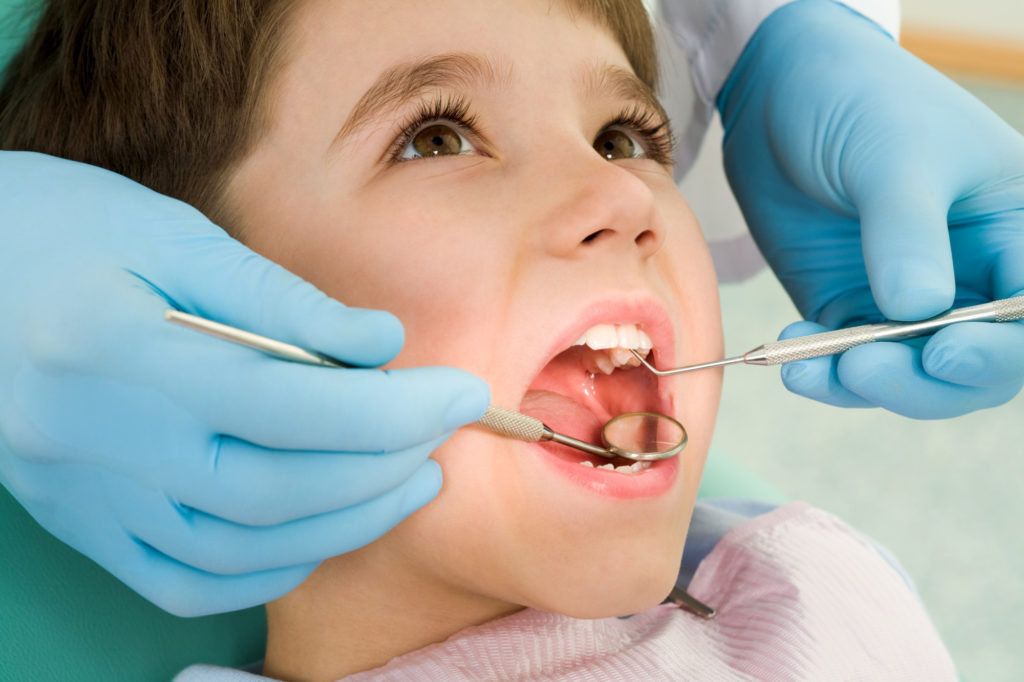
According to research, approximately 43% of children between ages 2 and 19 develop cavities.
It’s not just Halloween candy that causes cavities to form, however.
Helping your child develop healthy oral care habits now can teach them how to protect their teeth in the future. As a result, they can attend dentists appointments with a smile on their face and leave knowing they’re cavity-free.
Here’s all you need to know about cavities in children. We’ll cover everything from causes and prevention. After reading this guide, you can keep your child happy, healthy, and grinning ear to ear.
Cavity Causes
You likely grew up hearing the basics yourself as a kid. Brush your teeth twice a day, floss, and keep the sweet treats to a minimum.
The natural bacteria in your mouth feed off processed carbohydrates and sugary snacks. This causes bacteria clusters and a layer of plaque to build. Acidic waste then seeps onto the teeth, destroying tooth enamel.
This process causes cavities in children and adults.
Cavities take time to develop, though. Neglecting healthy oral habits fuels bacteria growth, creating the perfect environment for cavities to form.
These include:
- An unhealthy oral microbiome (referring to the bad bacteria in the mouth)
- The mouth’s pH level (bacteria thrive in acidic conditions)
- Saliva quality
Plaque is a sticky, clear film that sticks to the teeth. Bacteria form this plaque when starches and sugars aren’t brushed away. The plaque’s acids erode teeth enamel, eventually causing cavities to form.
Cavities in children (namely babies and toddlers) form when:
- Baby teeth aren’t brushed or wiped clean
- They drink too many sugary drinks
- They skip dentist appointments
- They go to bed with a bottle
If you decide to give your child a bottle before bedtime, don’t forget to clean their teeth before they fall asleep.
Otherwise, their formula or juice will deposit sugar onto the teeth. This creates an environment where bacteria breed and cause cavities in children.
To avoid raising kids with cavities, take your child to the dentist when they’re between six months to a year old.
For the Big Kids
Once your child grows out of their toddler years, it’s important they learn how to protect their teeth on their own. Here are a few causes of cavities and tooth decay in older kids:
- Too many high-carb, high-sugar snacks (allowing oral bacteria to thrive)
- A poor overall diet that neglects nutrients and minerals
- Poor flossing, brushing, and dental hygiene habits
- Skipping dentist appointments
Candy isn’t the only cavity-causing food on the menu. Other easy-to-eat carbohydrate-rich snacks and sugars cause bacteria as well. These include bread, beans, dried fruits (raisins), pasta, and crackers.
Foods that contain phytic acid, such as beans, can keep teeth from absorbing nutrients and minerals. The teeth need magnesium and calcium to remineralize and heal cavities naturally. Try to limit these foods from your child’s diet.
As your child grows, they’ll want to prove they’re independent. Even so, it’s important to keep an eye on their progress. Remember, helping your child develop healthy habits as toddlers will help when they’re older, too.
Symptoms
The symptoms of cavities in children vary. However, you may notice your child experience:
- Tooth sensitivity
- Pain when they bite/chew
- Toothaches
- Sharp or mild pain when they eat/drink hot or cold beverages
- Staining against the tooth’s surface
If your child experiences these symptoms, see a dentist immediately.
Limiting these symptoms by taking steps to avoid cavity development can make future dentist visits easier, too. Otherwise, your child will begin to associate dentist visits with the pain they’re experiencing. This can cause them to develop dental anxiety as well.
Cavity Prevention
Good dental and oral hygiene can keep your child’s teeth safe and clean.
To avoid cavities in children, make sure to:
- Visit the dentist regularly
- Brush their teeth with fluoride toothpaste twice a day
- Rinse their mouth
- Drink tap water (which often contains fluoride)
- Limit frequent snacks or sugary drinks
- Eat healthy foods
- Floss food remnants away
Studies also show that water fluoridation can reduce tooth decay by 18 to 40%.
Help your child develop a healthy oral microbiome.
In addition to brushing their teeth twice a day, a healthy diet can also help. In fact, eating and avoiding certain foods can help cavities heal naturally.
For example, Paleo diets include grass-fed meats, wild-caught fish, and vegetables. These foods offer the nutrients and minerals your child’s teeth needs for remineralization. This healthy diet can heal cavities while preventing them from forming in the first place.
Your dentist can also provide additional tips for helping your child avoid tooth decay. Regular dentist appointments can help you detect problems with your child’s teeth early on. Early detection, sealants, and fluoride varnishes can protect their teeth from future decay.
A Little Warning
While your youngster’s baby teeth will eventually fall out, tooth decay can still cause future issues. For example, decayed baby teeth can cause problems as your child’s adult teeth develop.
Young children with cavities might hesitate to chew properly because of the pain. This can cause facial development issues. Removing decayed baby teeth impact how the remaining teeth grow in.
Make sure to give your toddler a helping hand with this guide to brushing their little teeth. Turning this time into a fun bonding activity will make your child excited for this pre-bedtime ritual.
Developing healthy habits when they’re younger will benefit their smile as they grow.
Cavity-Free Kids: Your Guide to Cavities in Children
Let’s see those big healthy smiles! With this guide to cavities in children, you can help your kids grow up cavity-free.
Don’t forget to take your child in for a check-up with the dentist. Regular appointments can help you detect cavities and tooth decay early on. Your dentist can also provide attention tips to help your child grow up cavity-free.
Request an appointment with us today to protect your child’s adorable smile from cavities.
 (214) 453-2565
(214) 453-2565